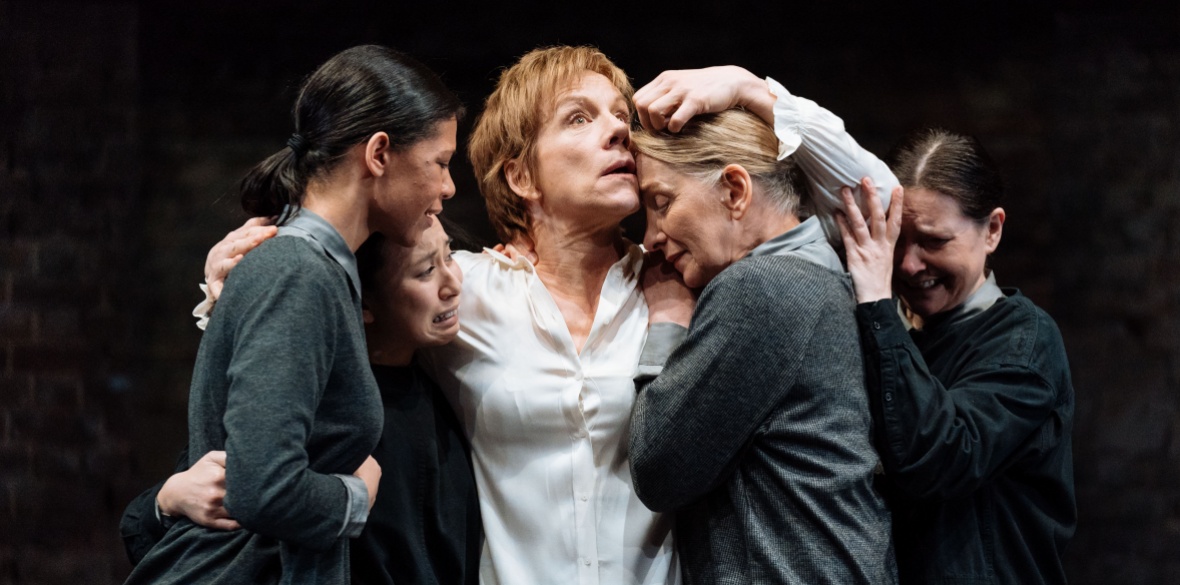This is the last article you can read this month
You can read more article this month
You can read more articles this month
Sorry your limit is up for this month
Reset on:
Please help support the Morning Star by subscribing here
Mary Stuart
Duke of York Theatre, London
WE ARE all prisoners of our own personalities and of history and no-one understood this better than Friedrich Schiller, widely regarded as Germany’s Shakespeare.
His epic historical drama Mary Stuart, transferred from the Almeida theatre to the West End, focuses on the tragic conflict between the Catholic Mary Queen of Scots and England’s Protestant Queen Elizabeth.
The complex family web of the Tudors left Mary with a valid claim to the English crown in the event of Elizabeth’s death and was consequently a rallying point for Catholic dissidents.
Robert Icke, director and adapter of this 18th century classic, eschews any thought of a chocolate-box costume drama. Its world, where personalities and politics entwine, is recognisably modern.
Set against the bare stone walls which serve both as Mary’s prison and the queen's court, the former is desperate to achieve her long lost freedom by any means and Elizabeth is trapped in her need to rid herself of her potential nemesis.
Schiller, like Shakespeare, is not bound by historical accuracy, with his play moving between Mary’s Fotheringhay prison and the English court during the final days preceding Mary’s execution. The result is a powerful drama with a focus on the relationship of the two queens who in fact never met.
But Schiller has their battle of wills coming to a head in a stunning confrontation in which Mary sacrifices her last chance of freedom in the suicidal satisfaction of telling her cousin what she is — a prisoner like her.
Juliet Stevenson and Lia Williams take either role, decided by a nightly spin of a coin, reflecting the psychological entrapment they share. Both are women with powerful sexual natures, the one destroyed by having surrendered to hers, the other by necessarily struggling to suppress her needs.
On press night, Stevenson plays Mary with a tortured mixture of passion, fear and anger, while Williams is all political manoeuvring and personal angst. They are both surrounded by recognisable wheelers and dealers motivated by ambition and realpolitik.
While at moments the production teeters on the brink of melodrama, a splendid cast led by these two actors maintains the tension throughout.
The moving final image has Elizabeth, now translated back through history to the traditional finery of the Virgin Queen, staring into a void — a solitary and lonely woman imprisoned in her guilt.
Runs until March 31, then tours until April 28, box office and details: almeida.co.uk












